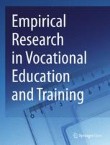New open access article published focussing on theoretical perspectives related to artificial intelligence and learning processes.
Gibson, D. C., Kovanovic, V., Ifenthaler, D., Dexter, S., & Feng, S. (in press). Learning theories for artificial intelligence promoting learning processes. British Journal of Educational Technology. https://doi.org/10.1111/bjet.13341
This paper discusses a three-level model that synthesizes and unifies existing learning theories to model the roles of artificial intelligence (AI) in promoting learning processes. The model, drawn from developmental psychology, computational biology, instructional design, cognitive science, complexity and sociocultural theory, includes a causal learning mechanism that explains how learning occurs and works across micro, meso and macro levels. The model also explains how information gained through learning is aggregated, or brought together, as well as dissipated, or released and used within and across the levels. Fourteen roles for AI in education are proposed, aligned with the model’s features: four roles at the individual or micro level, four roles at the meso level of teams and knowledge communities and six roles at the macro level of cultural historical activity. Implications for research and practice, evaluation criteria and a discussion of limitations are included. Armed with the proposed model, AI developers can focus their work with learning designers, researchers and practitioners to leverage the proposed roles to improve individual learning, team performance and building knowledge communities.


